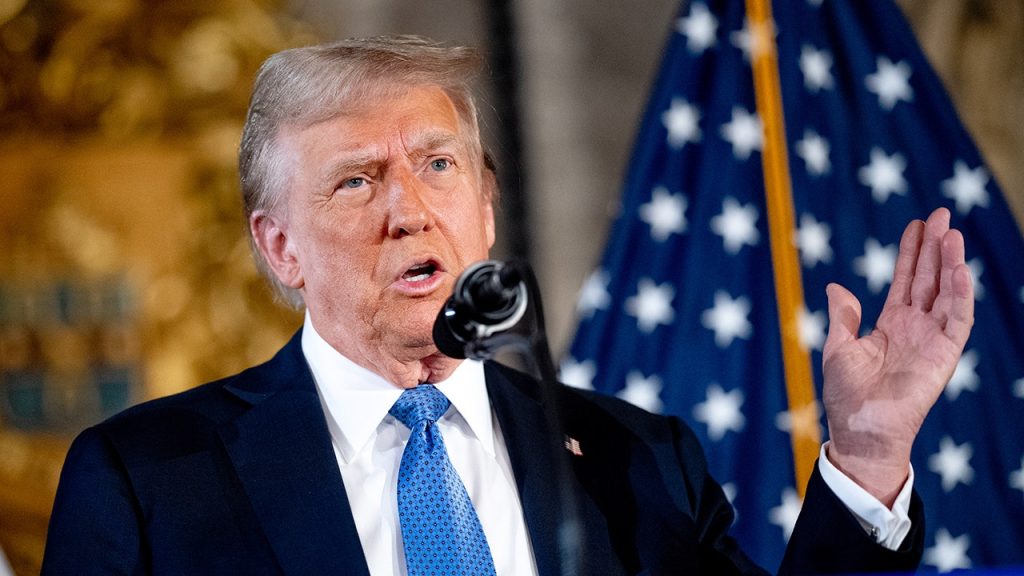Trump Announces Extensive List of Nominees for Key Administration Positions
Former President Donald Trump has unveiled a comprehensive list of nominations for various positions within his prospective administration, spanning diverse fields such as defense, technology, agriculture, and personnel management. These announcements, made via Truth Social, signal Trump’s intent to assemble a team he believes will effectively implement his agenda if he were to return to office. The nominees represent a mix of individuals who served in his previous administration, alongside new figures from the private sector.
Trump’s agricultural pick, Stephen Alexander Vaden, previously held the position of General Counsel at the Department of Agriculture during Trump’s first term. Vaden’s prior experience, coupled with his successful arguments before the Supreme Court and his focus on rural America, makes him a familiar and potentially effective choice for the role of Deputy Secretary. Trump emphasized Vaden’s legal acumen and dedication to serving the American people.
Significant attention was given to the defense sector, with Trump naming several individuals to key positions within the Pentagon. This emphasis on defense aligns with Trump’s repeated pronouncements on bolstering military strength and pursuing a "peace through strength" foreign policy. Stephen Feinberg, a successful businessman and former chairman of Trump’s Intelligence Advisory Board, was tapped as Deputy Secretary of Defense. Elbridge Colby, known for advocating an "America First" defense policy, was nominated for Under Secretary of Defense for Policy. Michael Duffey and Emil Michael were chosen for the roles of Under Secretary of Defense for Acquisition and Sustainment, and Under Secretary of Defense for Research and Engineering, respectively. Their combined expertise is intended to revitalize the defense industrial base and ensure technological superiority for the military.
Further strengthening the defense team, Trump nominated Keith Bass, a retired Navy Commander, as Assistant Secretary of Defense for Health Affairs, and Joe Kasper as Chief of Staff for the Secretary of Defense. Bass’s focus will be on ensuring troop health and access to quality medical care. Kasper brings experience from both the Trump administration and Capitol Hill. This group of nominees reflects Trump’s desire to reshape the Pentagon and prioritize military readiness.
Beyond defense, Trump also addressed other crucial areas of government. Scott Kupor, a managing partner at the venture capital firm Andreessen Horowitz, was nominated to head the Office of Personnel Management. Kupor’s experience in the private sector is anticipated to bring reforms to the federal workforce. This selection suggests a potential focus on efficiency and streamlining within government agencies.
The final cluster of nominations centered on technology and digital assets. Michael J.K. Kratsios, with a background in the Department of Defense, was selected to lead the White House Office of Science and Technology Policy. Dr. Lynne Parker, a specialist in artificial intelligence, was nominated as Executive Director of the President’s Council of Advisors on Science and Technology. Bo Hines and Sriram Krishnan were chosen to focus on digital assets and artificial intelligence policy, respectively. These nominations reflect the growing importance of technology in shaping policy and governance.
These extensive nominations paint a picture of the potential structure and priorities of a second Trump administration. They highlight a blend of individuals with prior experience within the Trump administration and newcomers from various sectors, including business, technology, and the military. The nominees’ diverse backgrounds and areas of expertise suggest Trump’s focus on issues ranging from national defense and economic policy to technological advancement and regulatory reform. The announcements underscore Trump’s stated commitment to implementing his “America First” agenda if he were to return to the presidency. While the realization of these appointments hinges on future electoral outcomes, they provide insight into Trump’s vision for a future administration.
The numerous nominations also signal a potential shift in focus within various government departments, particularly within the Department of Defense. The individuals chosen for key defense positions suggest a continued emphasis on strengthening the military, modernizing defense technologies, and prioritizing an "America First" approach to foreign policy. The emphasis on technology-related roles reflects the growing importance of these fields in national security and economic competitiveness. The selections of individuals with private sector experience suggest a potential focus on bringing business practices and innovation to government operations.
Overall, these nominations represent a comprehensive attempt to shape a future administration that aligns with Trump’s stated policy goals. While the future remains uncertain, these announcements provide a glimpse into the potential direction of a second Trump term.

